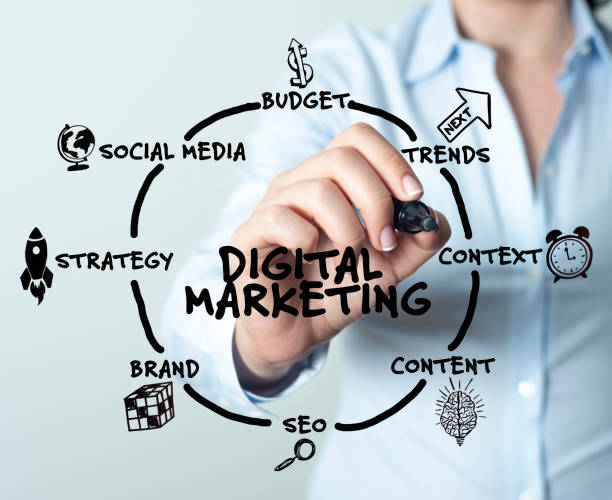
In today’s digital age, businesses are leveraging the power of the internet to reach and engage their audiences more effectively. This strategy, commonly known as digital marketing, has revolutionized the way brands communicate with their customers, driving growth and innovation across industries.
Defining Digital Marketing
Digital marketing uses online media, tools, and methodologies to promote goods, services, or brands. It is in contrast with traditional marketing that used mediums like print, radio, and television. Digital marketing connects with audiences via social media, search engines, email, and websites.
Key Components Of Digital Marketing
Digital marketing is an essentially diverse discipline or area consisting of various strategies and channels. Here are the main components of digital marketing:
1 Search Engine Optimization
SEO is the optimization of a website for getting higher visibility on search engine results pages (SERP). The intention is to bring organic and non-paid traffic to the website by ensuring that the website ranks higher against the relevant keywords.
2. Content Marketing
Content marketing works to create and distribute valuable, relevant, and consistent content to attract and retain a clearly defined target audience. These include all forms of marketing, such as blogs, videos, infographics, or eBooks.
3. Social Media Marketing
Social media platforms like Facebook, Instagram, LinkedIn, and Twitter are powerful tools for engaging with audiences, building brand awareness, and driving traffic. Social media platforms like Facebook, Instagram, LinkedIn, and Twitter are powerful tools for engaging with audiences, building brand awareness, and driving traffic.
4. Pay-Per-Click Advertising (PPC)
PPC is a form of advertisement where the advertiser pays for display of an advertisement, whether on search engines or social media platforms. The marketers pay an amount when an ad is clicked, thus it is one of the best ways to attract traffic.
5. Email Marketing
Email marketing is still one of the most effective channels to nurture relationships with customers. Email marketing is about sending out timely messages to subscribers, engage them, and thereby converting into sales.
6. Affiliate Marketing
In this strategy, affiliates are partners that market one’s products or services in return for a commission on sales made.
7. Analytics and Data Analysis
Tracking and analyzing data is at the heart of digital marketing. Programs like Google Analytics help offer insights into user behavior, campaign performance, and possible areas of improvement.
Why is Digital Marketing Important?
Digital marketing is important for businesses of every size, for being able to reach a wider target audience, being economical, and being able to deliver measurable results. Here are the key advantages:
- Global Reach: Digital marketing allows the brand to sell products to consumers worldwide-a feat impossible with the other formats of marketing.
- Cost-Effective: Most of the digital marketing methods are cheaper than their traditional counterparts, which makes them viable for use even by small businesses.
- Targeted Audience Engagement: Marketers nowadays can use sophisticated tools to reach their target audience according to demographic, interest, and behavioural factors.
- Measurable Results: Results of digital marketing campaigns can be tracked and optimized while they are running for maximum return on investment.
- Improved Customer Interaction: Brands interact directly with either potential or current customers through the social media and other platforms.
Trends Shaping the Future of Digital Marketing
The digital marketing field is a fast-moving environment. Here are some of the areas that are beginning to take hold in the marketplace:
- Artificial Intelligence (AI): AI-powered tools reshape personalization, customer services, and predictive analyses.
- Video Marketing: Video is still very much a big foundation running the market places led by YouTube and TikTok.
- Voice Search Optimization: With smart speakers having a tremendous spurt into the market, the optimization of voice search is gaining importance.
- Interactive Content: Quizzes, polls, and interactive videos captivate users.
- Sustainability Marketing: Aiming at an eco-friendly answer, consumers are increasingly favoring brands that demonstrate respect for the environment and society.
Conclusion
digital marketing is nothing more than a present-day necessity. Its varied possibilities and tools allow companies to connect with the audience, forge brand loyalty, and get things done. Embracing digital marketing is key for both experienced marketers and novices alike to survive and flourish in today’s digital environment.
